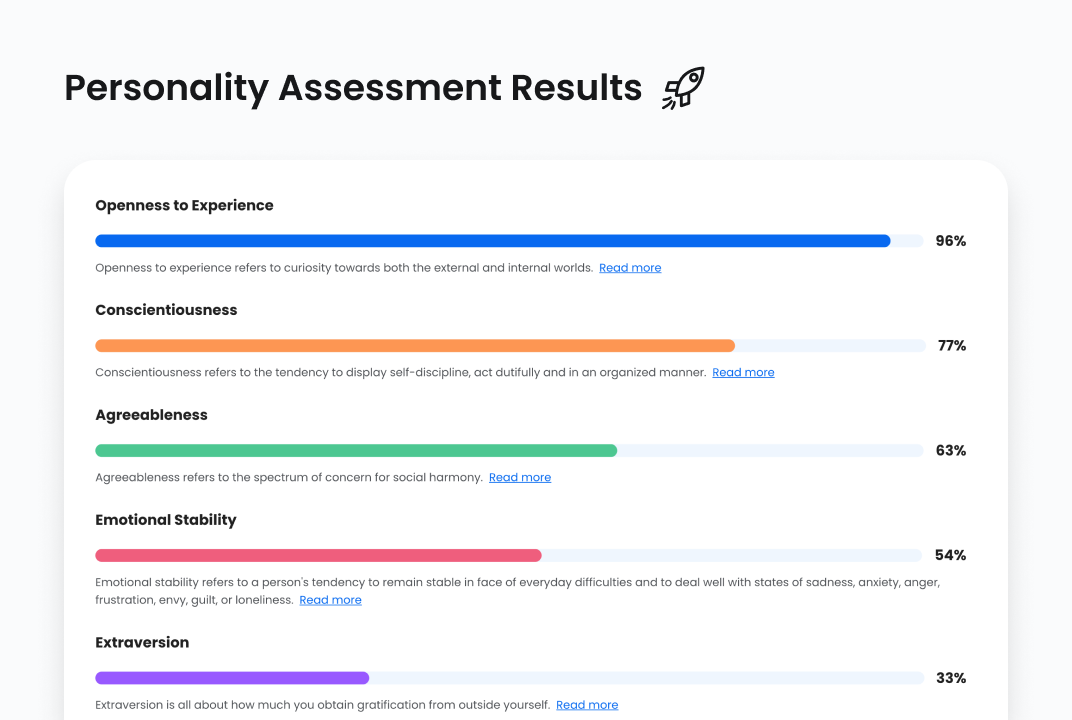Free Personality Test

Science-backed assessment, based on the ‘Big Five Model’
Benefits
Gyfted’s Free Personality Test provides you all the insights you need, regarding your big five personality traits. We’re sure you’ll be able to understand yourself better after taking this short quiz. It’s like looking into the mirror that’s inside of you.
Why is this of value to me?
How you can use this test?
How it works?
you’re at ease, undisturbed
and ready to focus.
you through the process. It’s
easy - just go with your gut
feeling.
you will receive your
feedback immediately
anyone, with just a click of a
button
What's Inside? Get immediate feedback by measuring these traits in you
Free Personality Test
Assessment Insights
Scientific and Empirical Foundations
Introduction to personality assessment: McCrae, R. R., & Costa, P. T. (1987). Validation of the five-factor model of personality across instruments and observers. Journal of Personality and Social Psychology, 52(1), 81-90. Big Five personality traits: John, O. P., Naumann, L. P., & Soto, C. J. (2008). Paradigm shift to the integrative big five trait taxonomy: History, measurement, and conceptual issues. In O. P. John, R. W. Robins, & L. A. Pervin (Eds.), Handbook of personality: Theory and research (pp. 114-158). New York, NY: Guilford Press. Personality assessment and personal growth: Robins, R. W., Fraley, R. C., Roberts, B. W., & Trzesniewski, K. H. (2001). A longitudinal study of personality change in young adulthood. Journal of Personality, 69(4), 617-640. Personality assessment in the workplace: Barrick, M. R., & Mount, M. K. (1991). The big five personality dimensions and job performance: A meta-analysis. Personnel Psychology, 44(1), 1-26. Personality assessment and team dynamics: Neuman, G. A., Wagner, S. H., & Christiansen, N. D. (1999). The relationship between work-team personality composition and the job performance of teams. Group & Organization Management, 24(1), 28-45. Personality assessment and interpersonal relationships: Luo, S., & Klohnen, E. C. (2005). Assortative mating and marital quality in newlyweds: A couple-centered approach. Journal of Personality and Social Psychology, 88(2), 304-326.


